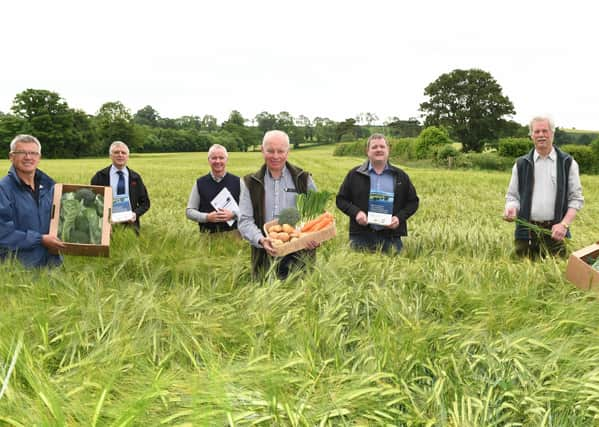Timely boost for the arable sector


Announcing the report UFU deputy president William Irvine said: “While the crop areas in NI have steadily declined over many years, a trend which continues today, the report identifies the opportunities for sustainable growth in all three elements of the sector – combinable crops, vegetables and potatoes.
“For example, local cereal production only provides 22 percent of the total animal feed requirements with the remainder being imported, and the interest in plant-based diets has never been greater.”
Advertisement
Advertisement
Bruce Steele, UAS chair said: “I’m delighted to have been part of the steering group which compiled the report on the NI arable sector. With my colleagues Robert Moore, David McElrea and Roy Lyttle, we listened to a broad range of views from growers and our customers along the various supply chains and have, with the help of our facilitator Ian Duff, come up with twelve action threads that are needed to reverse the downward trend and develop our vision for the future.
“This vision can be summed up as a sector which is an integral part of a progressive mixed farming region in which all farm types combine to deliver safe and affordable food that is both economically and environmentally sustainable.
“We recognise that NI is primarily a grass farming region and believe that by working together, livestock and arable farmers, can deliver a sustainable future for businesses and the environment. We see this very much as a ‘them and us’ not ‘them or us’ future.”
The steering group wish to thank the many individuals who gave their time so freely and shared their experience and opinions during the discussions leading up to the preparation of these recommendations. Their input was invaluable in helping to compile the report and develop recommendations, which the steering group hopes will help chart a path to an exciting, prosperous and sustainable future for the industry.
Advertisement
Advertisement
The summary report is now available to download from the UFU website and will be available shortly on the UAS website.
The total area of land dedicated to cereal production in NI last year amounted 29,500 hectares. This represented a decrease of 1 per cent compared to 2019.
In 2020 the total area of potatoes grown decreased by 2.6 per cent to 3,700 hectares; compared to the previous year.
Estimated field crop output in 2020 amounted to £62.2m. The comparable figure for 2019 was £70.7m.
Advertisement
Advertisement
Recent developments within the NI arable sector include the introduction of a pilot Protein Crop Scheme.
Agriculture Minister Edwin Poots MLA has announced that 95 farmers have planted protein crops this year, an increase of 300% on 2020.
He added:“The United Kingdom’s departure from the European Union provides us with the freedom and flexibility to introduce new agricultural policies which better reflect the specific needs of the farming industry in Northern Ireland I was therefore pleased to secure funding for this new and innovative Scheme, which we are piloting in 2021 and 2022, as the first step in this process.
“The first year of the Protein Crops Scheme pilot has proved a great success, with an increase in the number of farmers planting Protein Crops of 300%, and an increase in the total area sown of 450% compared to 2020 year.
Advertisement
Advertisement
“The Scheme will encourage the domestic production of plant protein crops, to help feed our livestock herd. This will have multiple benefits, including substitution of products we currently import from abroad, promotion of sustainable crop rotation and disease management practices, and diversification of our agricultural industry.”